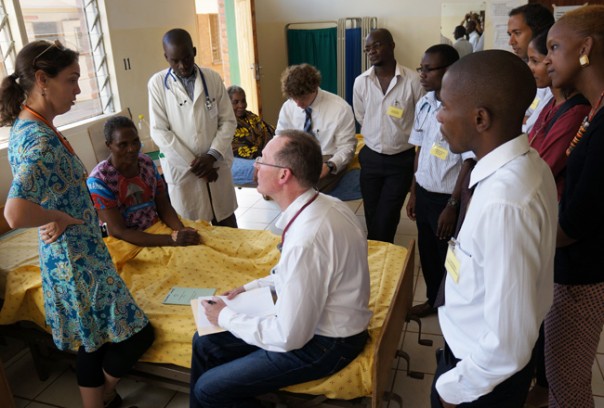by Peyton Veytia, Second Nature Intern
(This post is part of a series by the Second Nature team about why we do what we do.)
In just two days, I will walk across a stage at TD Garden and be handed a piece of paper that signifies the end of my undergraduate career. One of the many perks associated with this milestone is that over the past several months I have been subjected by family, friends, and complete strangers to every iteration of this terrifying question: “So, what are you doing next?”
Until very recently, I could offer no definitive answer to this common query. I’ve known for practically my entire college life that I want to promote positive change through working in the nonprofit sector. That’s why halfway through my first semester I switched majors from History to International Affairs in order to pursue my vague and totally realistic dream of “saving the world.” But while I knew the nonprofit world was where I belonged, I struggled for a long time to find a cause or social issue that I connected with on a deep level and would want to develop my entire career around. I used this uncertainty as an opportunity to explore roles in many nonprofit organizations, with missions ranging from improving primary education, to accelerating social sector performance, to delivering health services internationally to, now, facilitating sustainability initiatives in higher education.
 I’ve always been interested in broad intersecting issues like human rights, social justice, international development, and poverty alleviation. It wasn’t until I recently completed my senior thesis on health sector redevelopment in Rwanda that I realized I could combine all of these elements into one issue that I’m truly passionate about: improving healthcare delivery and overall health for marginalized populations, particularly those in developing countries.
I’ve always been interested in broad intersecting issues like human rights, social justice, international development, and poverty alleviation. It wasn’t until I recently completed my senior thesis on health sector redevelopment in Rwanda that I realized I could combine all of these elements into one issue that I’m truly passionate about: improving healthcare delivery and overall health for marginalized populations, particularly those in developing countries.
While the connections between healthcare delivery and sustainability were not immediately evident to me, I’ve come to understand that the two fields are in fact interrelated and mutually relevant. Most importantly, both disciplines have an underlying need for equity. Last summer I took part in a dual environmental ethics and international program development field study in Central America. During the program I learned that the poorest members of society are more likely to experience the negative consequences of unsustainable environmental actions, such as the construction of a canal across Nicaragua that would displace tens of thousands of already vulnerable people, including indigenous populations, and expose them to disproportionate economic, social, and health dangers. Similarly, disadvantaged populations all around the world run a greater risk of being adversely affected by conventional health policies, which often overlook diseases that primarily affect the poor, or do not incorporate pro-poor preferential payment options for standard health coverage. This is why it is essential to incorporate the concept of equity into both sustainability and healthcare initiatives and programs.
The primary reason I want to work in the healthcare delivery sector is so that I can help to increase the quality and accessibility of health services for underserved groups both domestically and internationally. Just like the right to a safe and healthy environment, I believe that access to adequate health services is a fundamental human right. However, far too many people are denied these basic rights. Although my plan isn’t to work directly in the sustainability field, I now appreciate the connections between the environment, sustainability, and health. It is my hope that by recognizing these links I can achieve greater and more enduring impact in advancing the cause of health equity. That’s my new answer to questions about “what I’m doing next,” and my overall motivation for pursuing a career in equitable healthcare delivery.
Photo credit: Partners in Health.
